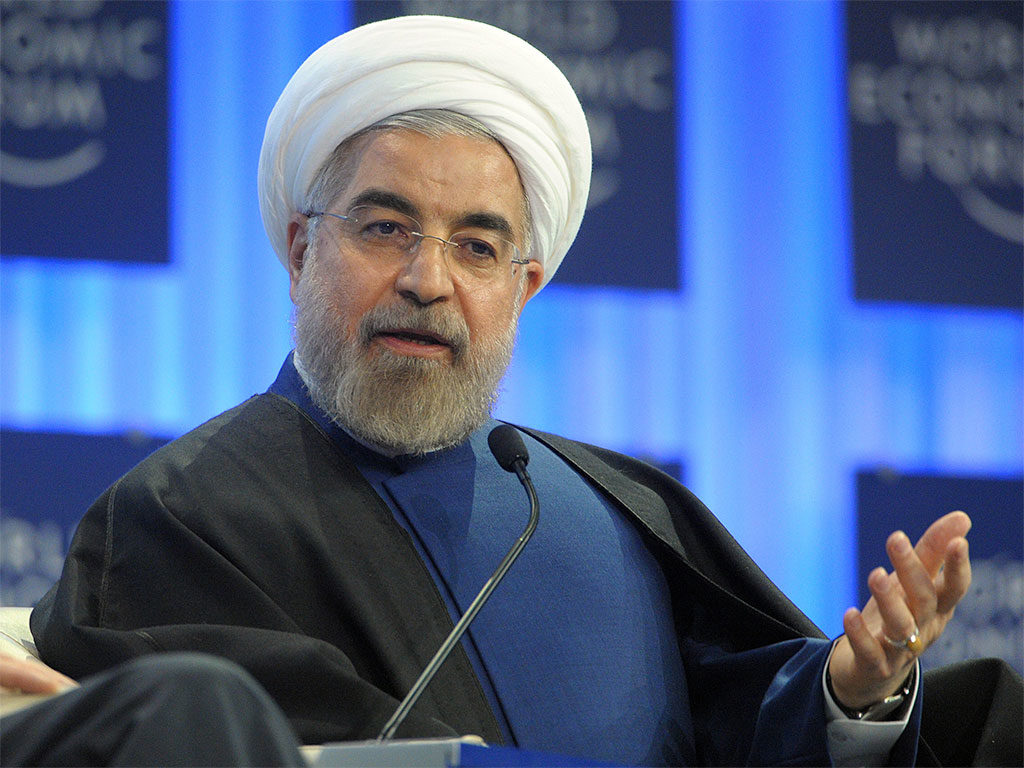IN THE MEDIA
‘Moderation’ screen hides reality of Iran
February 5, 2014 | Or Avi Guy

Or Avi-Guy
The Australian – February 05, 2014
http://www.theaustralian.com.au/opinion/moderation-screen-hides-reality-of-iran/story-e6frg6zo-1226817960323#
TO the naive observer, it might seem Iran’s relations with the international community are on the right track; under the leadership of an apparently more moderate president, Hassan Rouhani.
An interim action plan regarding Iran’s nuclear program was reached and further negotiations are taking place. Yet in the wake of this agreement and Rouhani’s larger “charm offensive”, most recently at the UN’s World Economic Forum in Davos, some appear to be prematurely optimistic that there is already a real change in Iran’s problematic international and internal behaviour.
However, a glance at Iran’s horrific human rights record under President Rouhani quickly reveals that the much-talked about “moderation” and “democratisation” remain wishful thinking and that Iran is a long way from meeting basic international human rights standards. While the nuclear deal with Iran has many flaws, one of its most troubling aspects is the complete separation of the nuclear issue from discussion of human rights and democratic reforms within Iran.
The list of Iran’s human rights violations is exceptionally long; The authorities carry out hundreds of executions annually, making Iran the world’s leading executioner per capita. Under Rouhani, the rate of executions seems to have increased, with some 100 Iranians executed in the first month after his election.
In 2013 alone, 625 individuals were executed without access to internationally recognised safeguards. And in January, just as Iranian delegates were resuming negotiations with the international community, the authorities back in Iran executed 40 people within only a couple of weeks.
Further, according to UN Special Rapporteur on Human Rights in Iran, Ahmed Shaheed, all prisoners in Iran are subjected to physical torture, while sexual, psychological and environmental torture, such as solitary confinement, are also very common.
This includes hundreds of political prisoners currently detained in Iran, such as leaders of ethnic and religious minorities, human rights activists, students, journalists, bloggers, artists and trade unionists.
Meanwhile, Rouhani, “the moderate” has done little to improve this shameful state of affairs and may even be contributing to making it worse. Mostafa Pour-Mohammadi, whom he appointed as Justice Minister, has been involved in major human rights violations, including the 1988 massacre of 5000 political prisoners. Vice President for Legal Affairs Elham Aminzadeh is considered a long-time apologist for Iran’s human rights record.
Iran also continues to be among the countries with the largest number of imprisoned journalists. If and when these journalists are actually charged, the accusations are as vague as “propagating against the system” or “insulting the president”. Internet activity is also censored and monitored and this has not changed under Rouhani. In recent weeks Bahar, a reformist daily newspaper, was forced to close and its editor was arrested.
Persecution of religious minorities also remains common. According to UNESCO, the Baha’i “face widespread and entrenched discrimination” and they are also routinely imprisoned for practising their faith. Meanwhile, other minority groups, such as Kurds and Christians, also suffer as their places of worship and education are closed down and their leaders imprisoned. The regime also represses women’s and LGBIT rights.
And then there’s the ongoing incitement to genocide practised by the Iranian regime. In September, just before Rouhani’s “charm offensive”, he addressed a crowd at a parade in Tehran, in which Shahab-3 missiles, featuring messages such as “Death to the USA” and “Israel should cease to exist”, were on public display.
And even if Rouhani’s style is less inflammatory than what we have become accustomed to, Supreme Leader Ayatollah Ali Khamenei’s incitement and annihilationist rhetoric against Israel has never ceased. On December 16, he tweeted his support and approval of Holocaust denier Roger Garaudy, on the anniversary of his trial for denying crimes against humanity in France.
Another external violation of human rights by Iran is, of course, its constant fuelling of international and regional terror groups, most notably via its sponsorship of Hezbollah. By supporting terrorist activity Iran acts as an agitator, aggressor and a regional destabilising force. According to a US State Department report: “Iran had ‘increased its terrorist-related activity’ over the past year. That includes the shipment of weapons, money and men to Bashar Assad . . .”
Ignoring the human rights violations in Iran and embracing the regime for its supposed willingness to negotiate on nuclear issues amounts to a betrayal of the Iranian population. Many Iranians revolted against their leaders back in 2009. Their protests were repressed with extensive bloodshed. They voted for Rouhani in hopes of social change, human rights reform and democratisation, but no significant signs of such reform have eventuated.
While nuclear negotiations are necessary, they cannot justify allowing ourselves to be duped by the superficial appearance of “moderation”. Real critical scrutiny of Iran’s appalling human rights record, and the exertion of diplomatic and economic pressure to ameliorate it, should not be negotiable.
Or Avi-Guy is a policy analyst for Australia/Israel and Jewish Affairs Council.
Tags: Iran





